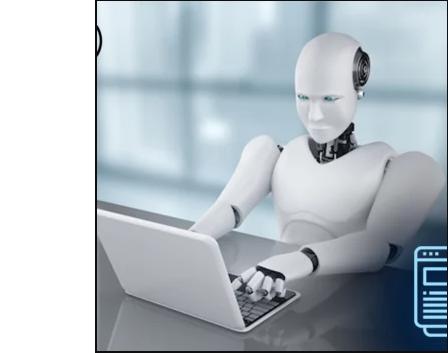AI in Content Creation: Can Machines Match Human Creativity?
The integration of AI in content creation has transformed the way marketers and writers approach their craft From generating ideas to automating entire articles, machine-generated content has become increasingly sophisticated. Yet, the question remains: can machines truly rival the depth and nuance of human creativity? As AI writing tools continue to evolve, this debate grows more relevant, pushing us to explore the balance between efficiency and originality in modern content creation.

How AI Assists in Content Creation
AI tools have revolutionized the content creation process by simplifying time-consuming tasks and optimizing workflows. Here are some of the ways AI in content creation is reshaping the industry:
1. Generating Ideas: AI-powered platforms analyze trends, keywords, and audience preferences to suggest relevant topics for content This feature is invaluable for marketers seeking fresh ideas tailored to their audience
2 Drafting Content: Tools like ChatGPT and Jasper can create drafts, write product descriptions, or even produce full articles based on prompts. These drafts save time and offer a foundation for further refinement
3. SEO Optimization: AI tools improve content visibility by analyzing search trends, suggesting keywords, and optimizing meta tags. This ensures content aligns with artificial intelligence in marketing goals
4. Personalization: AI algorithms analyze user data to tailor content for specific audiences, creating highly targeted campaigns
While AI excels at technical tasks, its capabilities often stop short of the emotional depth and originality that human writers bring to the table.
Benefits of Using AI in Content Creation
The adoption of AI writing tools offers undeniable advantages:
1 Efficiency: AI automates repetitive tasks, enabling faster content production This is particularly useful for high-volume needs like e-commerce product descriptions or social media updates
2 Cost-Effectiveness: Employing AI for routine writing tasks reduces the need for large creative teams, making it a budget-friendly solution for startups and small businesses.
3 Scalability: AI enables businesses to scale their content strategies quickly, producing hundreds of pieces in a fraction of the time it would take a human team.
4. Personalization: Leveraging creative content AI, brands can craft hyper-relevant messages that resonate with individual customers, enhancing engagement and loyalty
These benefits of AI in content creation highlight its potential to transform the marketing landscape, but they also come with limitations
Limitations and Challenges
Despite its many strengths, machine-generated content is not without flaws
1. Lack of Originality: AI lacks the ability to create truly original content. It relies on pre-existing data, meaning it often generates material that is derivative rather than innovative
2. Emotional Insight: Human writers draw on personal experiences and emotions to craft compelling narratives AI, however, struggles to replicate this depth of understanding
3 Cultural Nuance: Machines often fail to grasp cultural subtleties or context, leading to tone-deaf or inappropriate content in some cases.
4 Ethical Concerns: The rise of AI content raises questions about intellectual property and the potential misuse of automated tools to create misleading or plagiarized content
Understanding these limitations of AI content is critical to using it effectively without compromising quality or authenticity





























